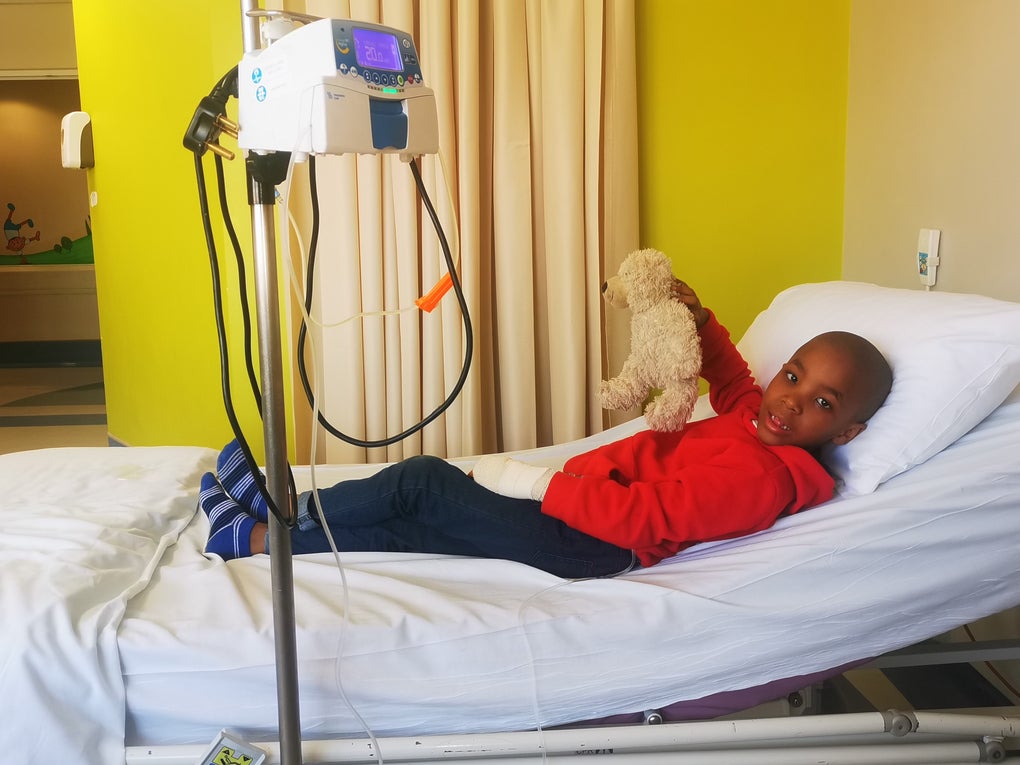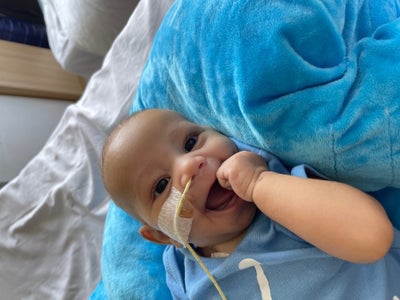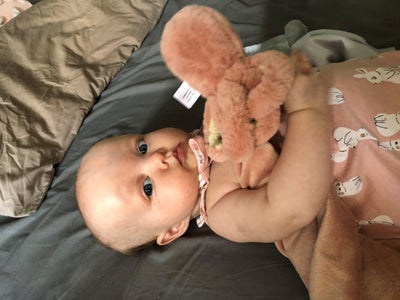
Donors needed to save young lives
Three South African children are currently fighting for their lives and desperately in need of stem cell transplants to cure their blood cancers and disorders. Rayaan, 4 months, Emily, 5 months and Neo, 9 years, all share one commonality– all are diagnosed with life threatening blood diseases and are awaiting blood stem cell transplantations from unrelated donors. Currently, between 800 to 1 000 children in South Africa are diagnosed with cancer, annually. However, this number does not account for the almost 50% of cases of childhood cancer that are never diagnosed, largely due to a lack of knowledge regarding the disease and how it presents in children.1
Due to the fact that children still experience growth spurts within a short space of time, this may cause blood cancer and disorders to spread quicker and more aggressively. Therefore, diseases affecting young children tend to be those most often occurring in the developing cells such as bone marrow, blood, kidneys and nervous system tissues.2
Rayaan, Emily and Neo’s families' lives have been turned upside down by blood cancer and disorders.

Baby Rayaan, four-months old, was diagnosed with life-threatening Acute Myeloid Leukemia (AML) when he was just eight weeks old. AML usually requires immediate treatment and for baby Rayaan, a bone marrow or blood stem cell transplant is his only chance of a cure. Without a successful transplant, Rayaan will have to endure continued chemotherapy and isolation, which will expose him to the terminal effects of infection. Rayaan is now in search of an unrelated matching donor, but the chances of saving this courageous baby are hampered by low representation of diverse stem cell donors across the country and in the global registry.
“Watching my son endure this pain is absolutely heartbreaking,” says his mother, Arlene. “There have been some very dark days. At one point he had to be resuscitated after a spinal lumbar puncture, but our courageous little fighter battled on and still wakes up every day with a smile on his face.” Arlene implores South Africans, “Please help my baby to live, he is just too little to suffer like this. Don’t delay - you could be his perfect match”.

Five-month old Emily from Johannesburg has been battling a blood disorder following her diagnosis in November 2021 at only three months. She was diagnosed with Juvenile Myelomonocytic Leukaemia (JMML) and is currently undergoing treatment in the hope that a stem cell transplant will be performed soon. As with Rayaan’s case, Emily’s best chance at survival is a blood stem cell transplant.
Dr Theo Gerdener, Clinical Haematologist at Albert Alberts Stem Cell Transplant Centre and Medical Director at DKMS Africa, explains that “Juvenile myelomonocytic leukaemia (JMML), which is especially prevalent in young children, is a rare cancer of the blood and occurs when white blood cells known as monocytes and myelocytes mature abnormally. This cancer can occur spontaneously or, in some instances, is linked to other genetic disorders.”
“Leukaemia affects white blood cells and bone marrow, and alarmingly, childhood leukaemia accounts for around 25% of all cancer in children,” says Dr Gerdener. “With proper diagnosis and management, including stem cell transplantation, childhood leukaemias can be cured in 85% to 90% of patients.”
Natalie, Emily’s mother, says at the tender age of five months, her daughter has already endured multiple blood and platelet transfusions, frequent injections and other medication, lengthy hospital stays including isolation and ICU admission, as well as surgery to insert a port in her chest for intravenous administration. Her parents desperately hope to find a stem cell donor match through DKMS’ global stem cell registry and donor centre to provide them with this 1 in 100 000 chance.
“We’re keeping positive and are hoping that a match will be found for Emily. Our hope is that she grows up, has a normal childhood and becomes a beautiful, bright young lady,” she says.
Neo, is a seven-year old boy who was diagnosed with Fanconi Anaemia (FA) in April 2019 at only four years old. A couple of years earlier, his older sister who was also diagnosed with the same blood disorder received a stem cell donor transplant, giving her a second chance at life.
Their Dad, Phoebus, recalls the late-night rushes to the hospital, overnight stays and time away from work as both parents grappled with the unusual, but persistent symptoms in their child as Neo endured uncontrollable nose-bleeds, debilitating fatigue, prominent bruising and innumerable fevers and infections owing to his compromised immune system. Neo is currently being treated, is transfusion dependent and is receiving steroid treatment among other things. Neo is also searching for his second chance in life through an unrelated donor match to provide him with a life-saving blood stem cell transplant.
A donor with the same ethnic background as a patient may be a better match than one who comes from an entirely different background. Globally, there are a low number of registered donors among the Black, Indian and mixed ethnic populations, meaning the pool of prospective matches is significantly lower. For patients like Neo, a substantial increase in the registration of Black donors will directly impact his chances of a successful transplant from a matched donor.
Neo’s family has thrown its support at DKMS Africa to champion the cause of education and awareness around blood diseases. “People need to be aware of these medical conditions and empower themselves with the appropriate knowledge. There are people and organisations that are there to help and people should not be afraid to reach out,” pleads Phoebus.
If you are in general good health and between the ages of 18 and 55, please consider joining the registry – it only takes a few minutes of your time and a simple cheek swab. For more information or to register as a donor, please visit www.dkms-africa.org or call 0800 12 10 82, weekdays between 8.30am and 4.30pm. Once you have registered online, a swab kit is sent to you via courier and then collected when you have completed the process (at no cost to you). Take action, save a life!
References:
2. Types of Childhood Cancers | CHOC Childhood Cancer Association SA


